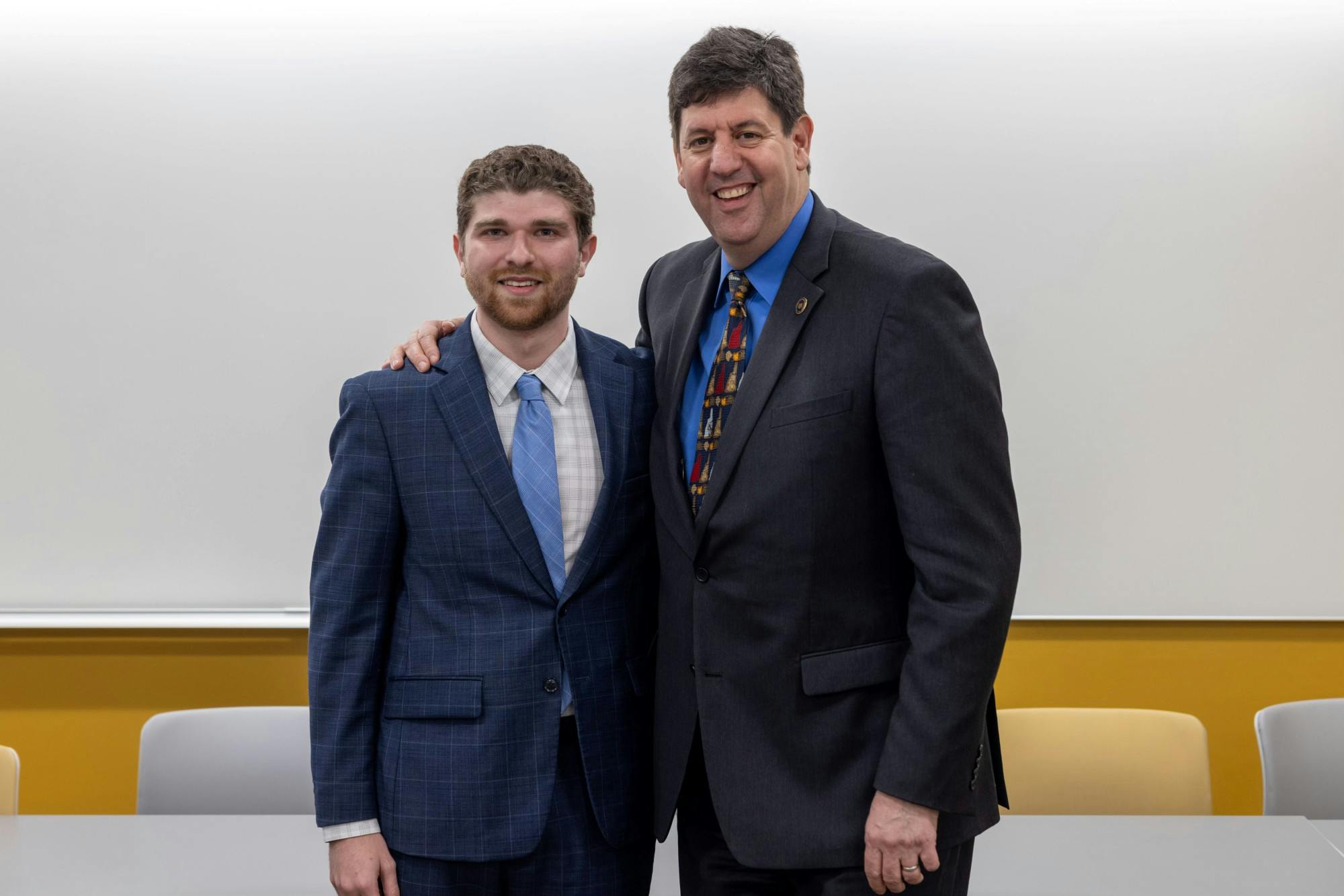On Feb. 21, Bureau of Alcohol, Tobacco, Firearms and Explosives director Steven Dettelbach ’88 spoke to students and community members in Filene Auditorium about gun violence and enforcement. Dettelbach emphasized the frequency of tragedies that occur from gun violence and the urgent need to address the issue.
After a brief introduction from senior class president Kami Arabian ’24, Dettelbach reiterated that the ATF serves “to protect the American people from violent crime.” As the only federal law enforcement agency solely dedicated to this purpose, the ATF holds jurisdiction over anything that “booms, burns or bangs,” Dettelbach said. Dettelbach recounted the ATF’s involvement in the aftermath of national tragedies, including the crack violence of the 1980s, the 1995 Oklahoma City bombing and the Sept. 11 attacks on the World Trade Center in 2001.
For expansive coverage, the agency forms coalitions with local police and other federal agents, Dettelbach said.
“We are literally working with police officers every single day to identify and catch and prosecute … really violent people,” Dettelbach explained. He outlined the ATF’s two-pillar strategy: identifying trigger pullers — individuals who pull the trigger during shootings, attacks or other violent incidents involving guns — and disrupting the flow of guns to them.
Crime gun intelligence is one crucial tool the ATF uses to track and trace firearms. The director revealed that the ATF has traced 645,000 crime guns — firearms that are used or involved in criminal activities, producing numerous potential leads. He added that the agency pioneers new DNA extraction methods from crime guns.
“Whether it’s through rulemaking or [the] inspection process, [we are] doing everything on the regulatory side we can to slow down that flow of firearms to the black market,” he said.
Dettelbach then addressed the issue of stolen guns, calling for a national education campaign on safe storage. He clarified that the ATF’s focus is on responsible gun ownership and emphasized that Second Amendment rights are not being revoked.
“If you’re in the business of dealing firearms under the law, you have to run background checks no matter where you sell the guns, whether it’s in your store, whether it’s at a gun show, whether it’s in some other place or online,” Dettelbach said.
The lecture concluded with a Q&A session, during which students and community members had the opportunity to engage directly with Dettelbach.
Maggie delaFuente ’27 attended the event after Dettelbach visited her PBPL 5: “Introduction to Public Policy” class that day relating her own connection to gun violence. She noted that it seems difficult to change the status quo after Congress enacts gun-related legislation.
“My brother was at Michigan State [University] when the school shooting happened last year, so the issue feels very personal,” she said. “… I wanted to hear … what he could do in his role to address the issue ... It almost seemed Dettlebach was kind of powerless in being able to address the issue outside of what Congress had already signed into law.”
Arabian said that he endorses any legal policy to reduce the alarming trend of gun violence.
“I would be for any policy that is legal and reduces some of these very frightening statistics that we discussed,” Arabian said “… Everyday, 120 Americans die in a gun-related incident, so anything that can legally reduce these numbers and reverse the trends is something I would endorse.”
Arabian noted that Dettelbach did well at bridging the gap between those who disagreed on gun control policy.
“During the Q&A, Dettelbach brought people from clearly opposed perspectives together,” Arabian said. “... Putting a productive dialogue forward where people are civil and tolerant and respectful of ideas that they happen to disagree with, I think is always a good thing.”
On the other hand, Quinn Allred ’26 criticized Dettelbach’s passive stance on gun ownership, highlighting the risk of the bump stock ban’s reversal. Allred explained that Dettelbach didn’t adequately address that lawful gun owners play a significant role in contributing to gun violence. In 2019, the U.S. government took regulatory action to prohibit the possession and use of bump stocks, a firearm accessory designed to increase the rate of fire of a semi-automatic firearm, allowing it to simulate the firing speed of a fully automatic weapon. This device gained national attention after its use in the 2017 Las Vegas shooting.
“The bump stock ban, which is to me the single most important thing that ATF has done to prevent gun violence in this country, is going to get overturned,” Allred said.
Allred expressed his frustration and questioned the expectation to remain calm in the face of ongoing gun violence, asking “When life is called into question, how are you supposed to just resume as normal?”
Kami Arabian ‘24 is a former Opinion Editor for The Dartmouth.




